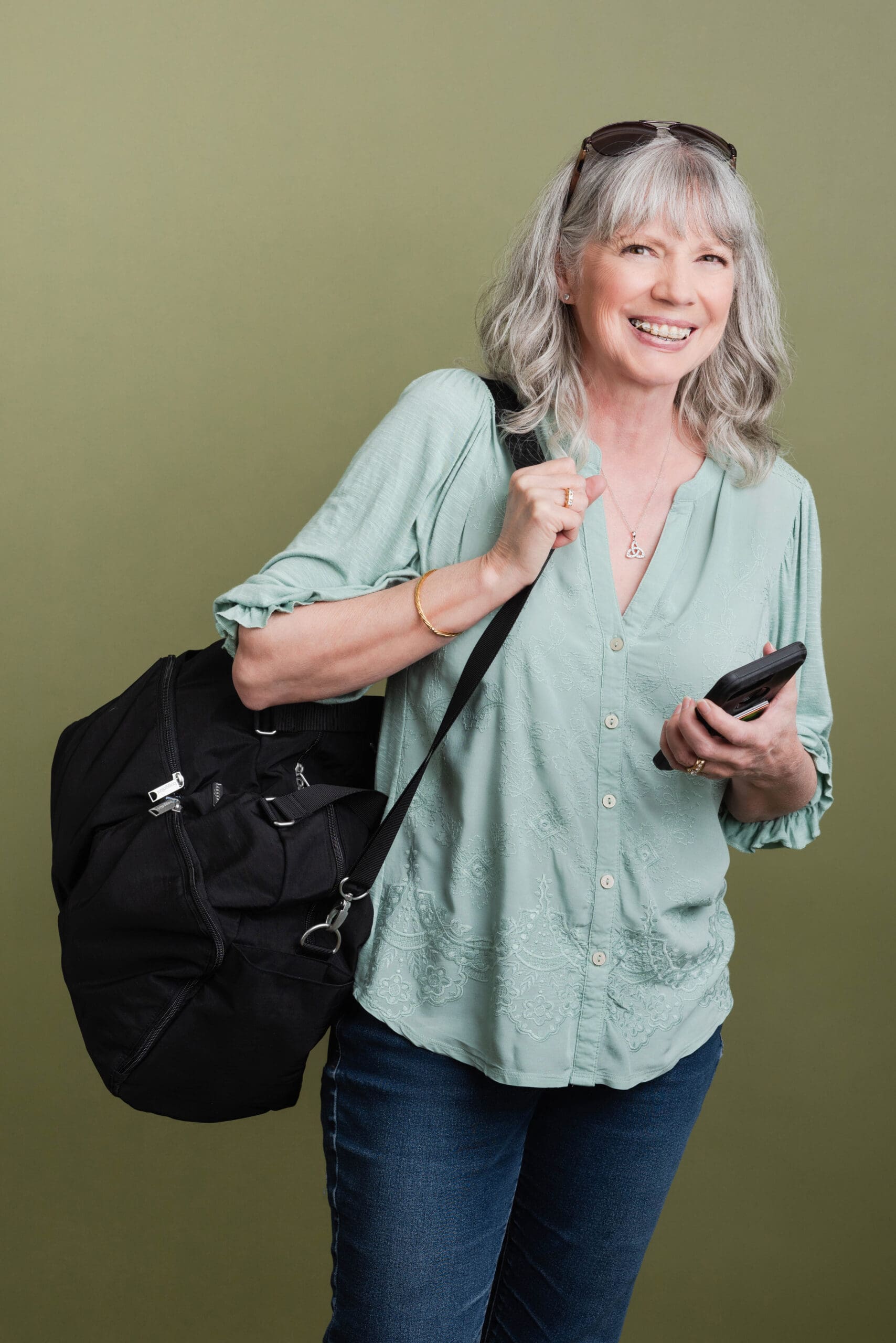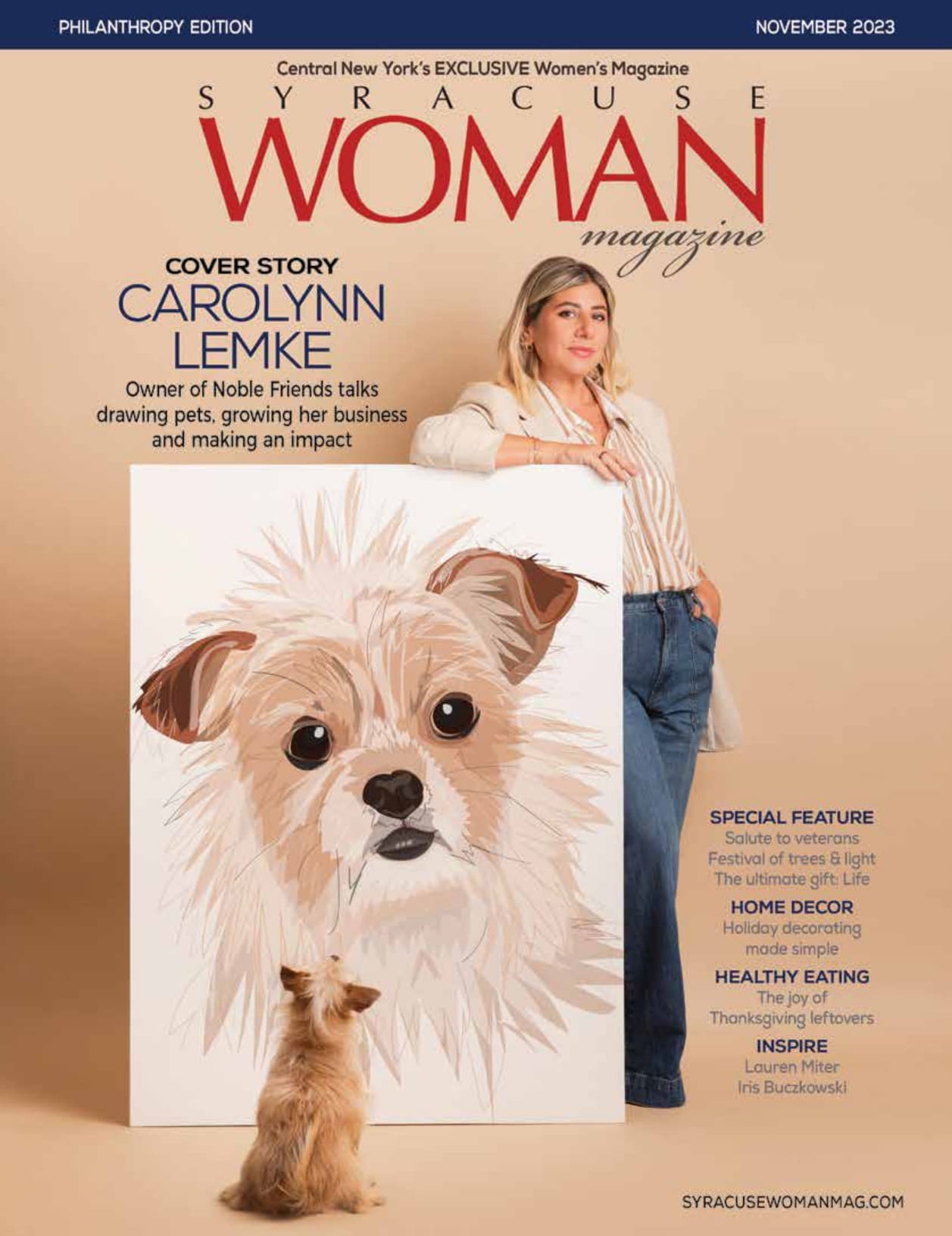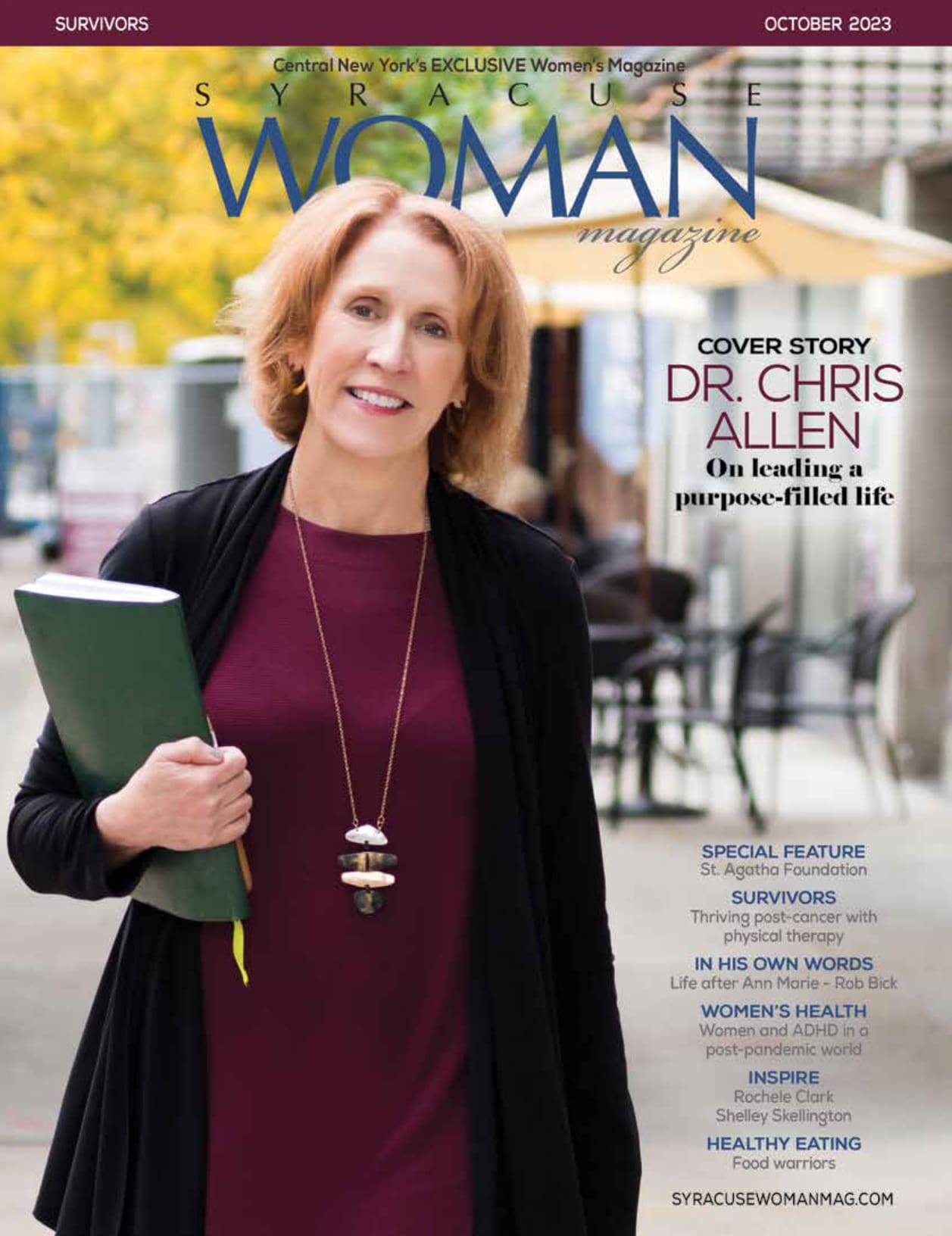By Emma Vallelunga
SYRACUSE – If Kristin Rubino didn’t listen to her heart, she would not be alive today. Her passion for women’s heart health awareness began with a life-threatening experience that allowed her to educate and relate to thousands of women as this year’s Syracuse Go Red for Women campaign chair for the American Heart Association.
In September 2019, Rubino woke up one warm autumn morning with a sharp pressure in her chest and an unexplainable tightening in her jaw. She told her husband and one of her colleagues, who both insisted she go to urgent care. On the way there, she told herself it was allergies or a chest cold, thinking about her work commitments and how she was too busy to get sick. She had always lived a relatively healthy, active lifestyle. She had no reason to believe something else could be wrong.
At the urgent care, she was convinced she only needed a chest X-ray. When the X-ray came back, her lungs were clear, but her blood pressure was skyrocketing. The healthcare workers urged her to go to the hospital immediately. At first, she said no. She had never experienced high blood pressure before, and she had too much on her plate at work that week to be admitted to the hospital.
“The physician’s assistant who was seated across from me spun his chair around, and I’ll never forget his words,” Rubino said in a video she made for the AHA’s Youtube channel. “He said, ‘Kristin, if you were my sister or my friend, I would implore you to go to the hospital for additional testing. It’s only going to take an hour. And if you’re not going to do it for yourself, do it for your family.’ And those words spoke to me.”
Within the hour, a CT scan revealed Rubino had a six-centimeter aortic aneurysm that was ready to burst at any moment. She was rushed to the ICU and prepped for open-heart surgery at St. Joseph’s Hospital in Syracuse.
“I kept thinking I shouldn’t be here,” Rubino said in the video. “I’m not like the other patients in the cardiac care unit. They all seemed older, and they looked ill, not realizing that I was among them for a reason. It was such a surreal experience, and I just kept thinking, ‘This isn’t happening. I’m in the twilight zone.’”
Rubino said she had many colleagues in the healthcare industry who knew more about the seriousness of her condition than she did. If Rubino’s aneurysm had ruptured before she got to the hospital at all, the outcome would’ve been fatal.
“At the time, I didn’t know my odds of survival were so incredibly low,” she said. “So many of my friends are surgeons or doctors, and they all were pouring into ICU to come visit me before the surgery [because] they were all so worried that I wasn’t going to live.”
And in that moment, after waking up from a complicated surgery and reflecting on what she had overcome, Rubino was inspired to make a difference.
“My first thought was I just want to find a way to give back, and I’m going to dedicate my life,” she said. “I don’t care if I have to quit my job. I’m going to dedicate myself to women’s heart health and knowledge, and if I can save one person, it is so worth it for me, because I shouldn’t have lived. The odds were completely stacked against me. I’ve really made it my mission to find a way to spread the word and increase knowledge for people who might be in a similar situation.”
It was also that September when two of Rubino’s friends ran into another mutual friend, Syracuse Go Red for Women Director Trina Tardone, who told her about Rubino and her story.
“I could just tell by their faces that something was wrong,” Tardone said. “They said that they just left Kristin, and she just had open heart surgery. And I really didn’t know her, but I was just so interested in her.”
As Rubino recovered from her surgery, she strengthened her ties with other members of the local AHA. A year went by before Tardone got a text from a different mutual friend involved in Go Red about Rubino’s compassion for the cause.
“We really did not meet in person but became very close over her story,” she said. “My mother had an aneurysm, and her life was saved [at] St. Joe’s Hospital [too], so I felt this connection to Kristin and what she discovered early.”
Eventually, Rubino was asked to be the passion speaker and chairperson for the campaign’s annual Open Your Heart event this past October, which was done virtually due to the pandemic. When Rubino was formally asked and accepted the position as chair of the entire 2021 campaign, Tardone agreed Rubino was the perfect person for the job.
“I really believe meeting her was serendipitous,” Tardone said. “She is a dynamo. She’s a compassionate, extremely bright, caring woman. Her life was dramatically and drastically changed. We’ve had such tremendous support from our diverse chairs over the years, but to have Kristin, who is also a heart survivor, is extraordinary because she understands from an education, advocacy and treatment [standpoint] around cardiovascular disease for women.”
Rubino, Tardone and the rest of the Syracuse Go Red for Women team are working to empower the minds of young girls and women through careers in STEM with the STEM Goes Red initiative. Tardone said emerging research from Go Red for Women suggests female heart attack patients may have better outcomes from their care if they’re treated by female physicians, underscoring the need for increasing the number of women treating women in healthcare.
“We know that when a female receives medical care from another female provider, the outcome is better,” Tardone said. “And if you look at how many cardiologists who are female in the community, there’s not many.”
STEM Goes Red will allow Syracuse GRFW to continue local programming, fundraising and networking throughout the year to increase STEM education for women, especially in the healthcare industry, as safely as possible during the pandemic.
Rubino said what’s special about the heart health community in Syracuse are the passionate people behind it who not only volunteer their time as board members for the AHA but also those who return year after year to volunteer, donate and support the cause.
“I’m a little unique because I literally almost lost my life, but a lot of [supporters] haven’t,” Rubino said. “They just know people who have, but they just have such a strong desire to support the cause.”
Rubino owes her advocacy and awareness to the support of her family, friends, coworkers and especially the healthcare workers who saved her life just over a year ago. She learned a lesson that day — heart disease can happen to anyone, so listen to your body when it needs to be heard.
“If you have a heart murmur, if you have any kind of small symptom, as small as it might be, you need to ask questions and be your own advocate for your healthcare because no one else knows your body like you do.”





